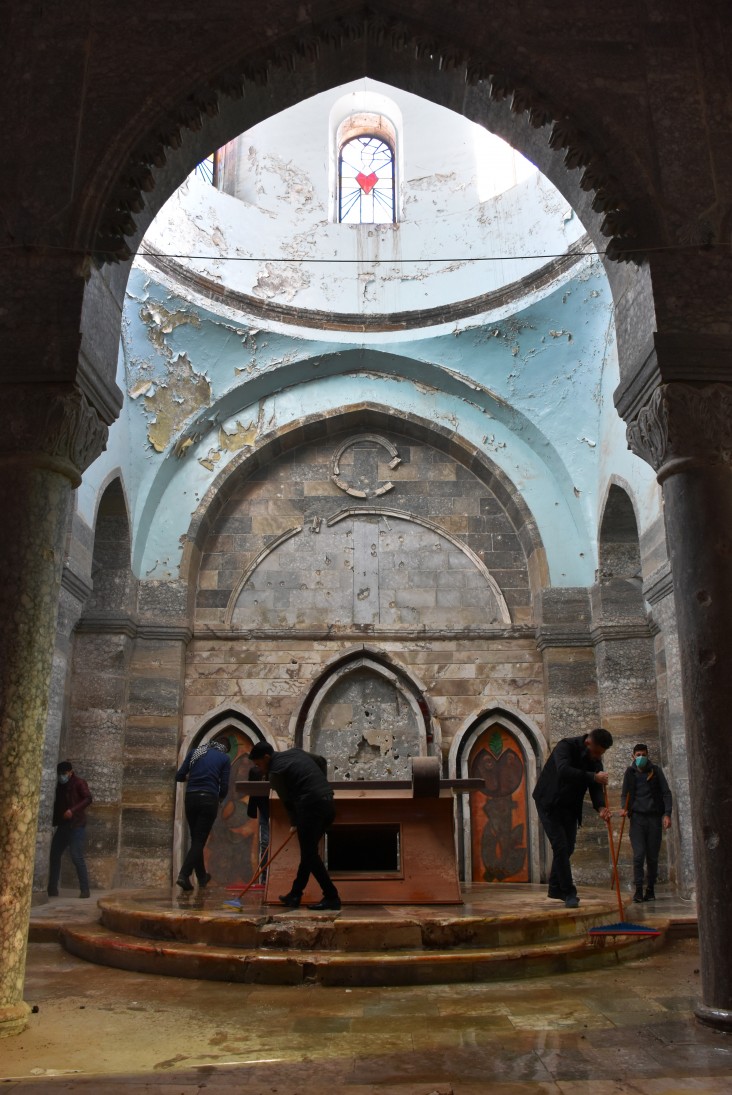Speeches Shim

USAID’s Shared Future project works with youth and community and religious leaders to support the durable return for internally displaced persons from the Ninewa Plain.
Project Snapshot
-
Implementing Partners: Catholic Relief Services (CRS) with sub-awardees Caritas Iraq, Iraqi Al-Amal Association, and YouthBuild International
-
Locations: Ninewa Plain (Bartella, Bashiqa, Nimrod, Telesqof, Tel Kayf, Qaraqosh, and Wanna)
-
Duration: June 2018 - September 2023
-
Budget: $17.8 million
Context
The violent multi-year occupation by the so-called Islamic State of Iraq and Syria (ISIS) in the north of Iraq forced many of the religious and ethnic minority groups to flee, breaking up communities and exacerbating fragility across the region. As internally displaced persons (IDPs) try to return home, ISIS’s invasion created significant destruction in the social fibers binding the diverse communities of Ninewa Plain and western Ninewa. Lack of trust and tolerance both within their communities and with other neighboring communities remain serious barriers to a successful and durable return of IDPs.
USAID Response
USAID’s Shared Future project supports the durable return for IDPs from the Ninewa Plain, focusing on the historically religious and ethnic minority communities of Bartella, Bashiqa, Nimrod, Qaraqosh, Teleskof, Tel Kayf, and Wanna. Along with its partners, USAID works with youth, and community and religious leaders to:
- Increase mutual understanding, tolerance, and trust both within their communities and with other communities through the innovative “3 B’s” (binding, bonding, bridging) methodology developed by CRS;
- Improve vocational and leadership skills to help youth gain dignified employment or start their own businesses;
- Improve youth livelihood opportunities through targeted vocational training aimed at fostering sustainable income generation.
Achievements to Date
- 74 percent of 325 youth participants and community leaders had an increase in mutual understanding, tolerance, and trust of other groups following completion of “binding” and “bonding” 8-week social cohesion sessions.
- COVID-19 adaptations: when the pandemic hit, the project adapted the bridging curriculum to be delivered through online workshop sessions. This required training community mobilizers in using new software, on the newly-adapted content, and methods for online capacity building initiatives.
- 263 participants in the youth livelihoods program completed intensive 13-week trainings in entrepreneurship or learning new vocational skills in the first two years.
- Distribution of 296 business start-up grants and professional development grants followed by in-person and remote coaching sessions to participants as they took their first steps in starting their own business or beginning an internship.
- Activity expansion: the project will reach two new areas (Nimrod and Wana), reaching 1,300 additional youth and 200 community leaders.

Comment
Make a general inquiry or suggest an improvement.